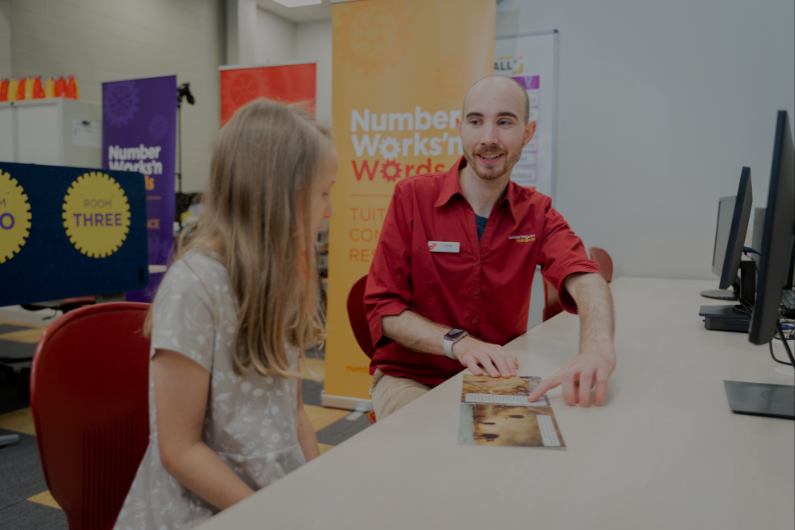Setting Fun and Achievable Goals for Kids in the New Year

As the new year begins, it presents an excellent opportunity for us to reflect on our aspirations and goals. While adults often focus on making their New Year's resolutions, encouraging our children to set realistic goals can have numerous benefits.
Setting goals teaches children valuable skills such as problem-solving, reflection, focus and perseverance, helping them develop confidence and self-esteem. In this article, we will explore why goal setting matters for kids, the types of goals you can help them set, and practical and helpful tips for helping them set achievable goals for the year ahead.
Why Set Goals?
Getting children started on goal setting is a great way to teach them how to work towards their own goals independently in the future. It can also teach them how to be more disciplined, build good habits, and plan—skills they will need when they grow up!
Most importantly, goal setting establishes a sense of purpose, supports decision-making, and develops self-confidence practices.
What Kind of Goals Should My Child Set?
The practice of goal setting is an invaluable skill to teach our children. It helps them determine what they want to achieve in their personal life and how to get there.
Before you and your child begin to set goals for the year ahead, sit down with them and have a discussion about what they want to accomplish and why. This will help them set clear, realistic, and specific goals that are achievable and align with their capabilities.
Teaching your child the SMART, goal; Specific, Measurable, Achievable, Relevant, and Time-Based framework.
- Specific: Goals should be clear with what they want to achieve and what steps they will need to take to achieve it.
- Measurable: Goals should have clear measures in place to track progress.
- Achievable: Goals should be realistic and attainable within a child's capabilities.
- Relevant: Goals should align with a child's interests and long-term aspirations.
- Time-based: Goals should have a set deadline, creating a sense of urgency and commitment.
If your child has their sights set on a long-term goal, the SMART goal framework helps them break it down into smaller goals.

Create an Action Plan
The goals we set for ourselves and our children aren’t always easy to achieve. Having an action plan in place can help guide children in the right direction and keep them on track to achieving their goals. Once your child has determined their goals, help them plan the steps needed to achieve success.
It’s important to support your child toward their goals. For example, if your child wants to learn to play the guitar, you can support them in this process by getting them enrolled in lessons or helping them find online learning resources.
Tracking the progress they make toward their goals is an essential ingredient for success. For some children, having a rewards chart or a star chart to track their progress and practice can help them stay motivated and keep them motivated.
As children grow up and reach a certain age, we have to learn to stop holding their hands and allow them to make decisions on their own. Rather than setting goals for your child, allow them to lead and let them choose their goals. Allowing children to set their targets will give them ownership and accountability over their actions.
Check-In or Reflection on Progress
Motivation always starts high when children set goals for themselves, but that may fizzle out over time due to other commitments or distractions.
Conducting regular check-ins on their progress will serve as a good reminder of the goals they set for themselves and why they set them in the first place. These check-ins are also a great way for children to revise goals that may have changed or add new goals to their list.

Celebrating Goal Achievements
Resolutions can be fun to set, but the best part is being able to celebrate when they reach their goals! One of the best ways to mark an achievement is to organise an activity—this could be a day out to their favourite beach with a special lunch together or a movie night with their best friends.
Whatever the reward, it is important to make the milestone distinct and special. Celebrating your children’s goals can help instil in them a success mindset and build confidence.
Popular New Year's Resolutions for Children
Here are five popular New Year’s resolutions for children.
1. Achieve or Maintain Good Grades
We all want the best for our children, and that includes staying on track with their learning and achieving good grades in school. A New Year’s resolution that your child may want to take on is to achieve or maintain good grades during the year.
For the coming year, help your child set some grade expectations and create goals to support them with their learning. Seeking additional support such as after-school tutoring could help your child achieve their goals.

2. Exercise Daily
Setting a resolution to exercise daily, whether it’s going for a run, swimming at a local pool, going for a bike ride, or even 10 push-ups each day are great way to keep your child active and fit.
If this is a New Year’s resolution your child wants to pursue, help them by incorporating fun into their fitness through family activities that get them moving, such as walking the dog or visiting their best friend at the playground.
3. Start a Savings Account
Helping your child to save money and start a savings account can be an excellent way to teach them financial responsibility. Establishing good financial habits early with your child will help them to be responsible with money later in life.
4. Try New Hobbies or Sports
Taking up a new hobby or sport is a great New Year’s resolution. It encourages children to think about what takes their interest or what they are passionate about. Help your child find a hobby they would like to start, whether it’s enrolling in dance classes or music lessons.
If you notice that your child loves being active, they may be interested in joining a sports team or club, such as basketball or soccer.

5. Eat Healthy
A New Year’s resolution for your child could be eating fruit and veggies every day to maintain a healthy diet. As parents, we know various foods our children enjoy may not always be the healthiest option, whether it’s sweet or savoury.
However, committing to eating healthy meals and building healthy eating habits can have a positive impact on their health, mental health, and well-being moving forward.
Teaching children how to set goals is a valuable life skill that will serve them well into adulthood. Even if their first-year resolutions do not always go according to plan, they can turn these experiences into valuable learning opportunities in areas of your life.
At NumberWorks'nWords, we provide holiday programmes to help children strengthen their maths and English skills in preparation for the school year ahead. Our tutoring programmes are designed to help students set and achieve their learning goals throughout the year.
Whether you think your child needs a boost before returning to school next week or needs to build on their foundational skills, our customised tuition caters to all types of learners aged 5-16. To learn more about our l tuition services, contact your local centre and book a free assessment today!




